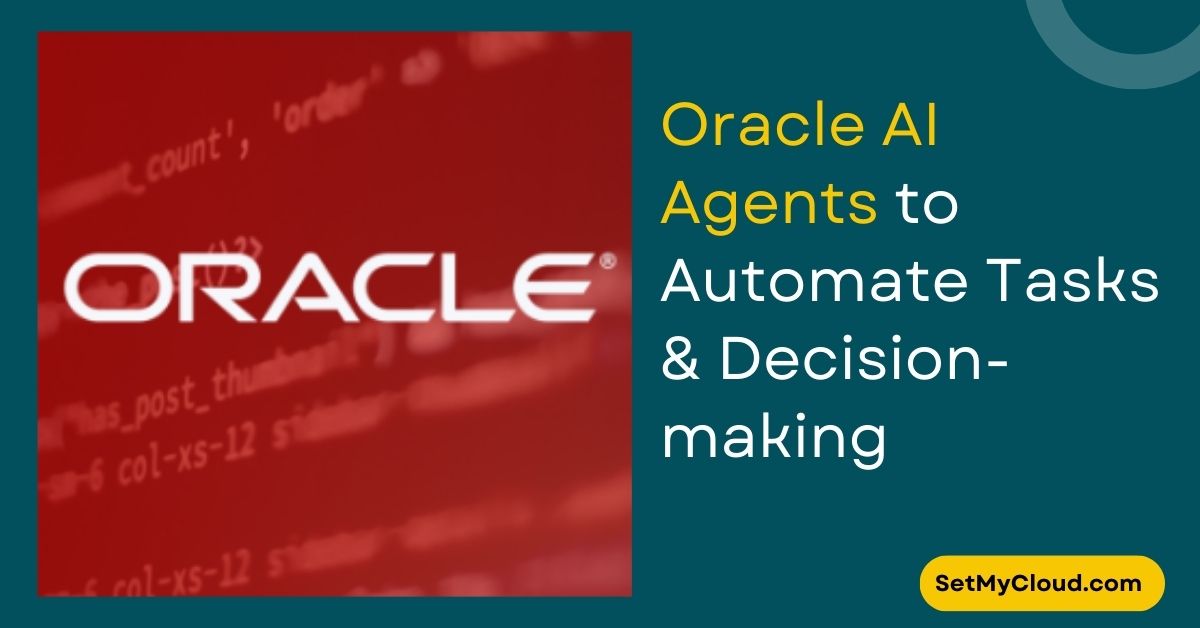As companies ramp up artificial intelligence spending and hunt for investment returns, they’re augmenting single-shot, question-and-answer interactions with AI software “agents” that help complete entire tasks.
The self-directed software leverages generative AI models—trained on vast amounts of data to make associations among concepts and learn new tasks—to find job candidates, analyze talent, research sales calls, and onboard suppliers. Oracle on September 11 said it would ship more than 50 such AI agents as part of its Fusion cloud business applications suite in areas spanning finance, HR, supply chain management, quality control, sales, and customer service.
Instead of relying on keyword triggers or pre-coded business rules and workflows, agents powered by large language models can carry out multi-step processes that span software tools, adapt to novel scenarios, understand users’ roles in an organization, and respond to natural-language prompts instead of code. That helps make them more flexible and less error-prone than previous systems that were more rigid and less aware of incoming information. AI agents can also pull data from businesses’ own documents, helping workflows stay relevant.
In one example, Oracle’s document agent could help a sales exec with the following functions: snap a photo on his phone of an overseas vendors’ price quote, extract relevant information and translate it from Japanese, then create a purchase request. Later on, the software can assist to automatically process the vendors’ invoice for review by a payment manager.
“It blows away anything we’ve ever been able to deliver before,” said Oracle Executive Vice President Steve Miranda during a speech at the company’s CloudWorld conference for customers and industry partners in Las Vegas. “It’s a tremendous change in terms of input and output from our applications across the board.”
AI’s pace of improvement—with agents just the latest example—may incent more companies to move their applications and data to software-as-a-service subscriptions and online platforms.
“We’re getting more customers to the cloud, but there are still laggards out there who haven’t moved,” says Oracle Group Vice President for Applications Development and Strategy Miranda Nash. “If there’s any incentive to getting to quarterly updates with new innovations, it’s got to be AI. How can you stay on the sidelines?”
Oracle plans to make Fusion cloud applications’ AI agents available within the next 12 months at no additional cost. The agents couple large language models that Oracle hosts on its public cloud with a technique called retrieval augmented generation (RAG) that extracts information from a company’s own documents and feeds the LLM with a continual history of what a computer user has done so it has more context for its answers. “It’s not easy to get consistent, reliable results out of these LLMs,” says Nash. “That’s not something customers should take lightly.”
Oracle AI agents are intelligent software programs designed to automate tasks, enhance decision-making, and improve customer interactions through artificial intelligence. They can be used in various applications across different industries. Here are some key features and functionalities of Oracle AI agents:
- Natural Language Processing (NLP): Oracle AI agents can understand and interpret human language, allowing them to interact with users in a more conversational manner. This is especially useful for customer support and virtual assistants.
- Integration with Oracle Cloud: These agents can seamlessly integrate with other Oracle Cloud applications, enabling organizations to leverage their existing data and workflows effectively.
- Machine Learning: Oracle AI agents can learn from interactions and data, improving their responses and efficiency over time. This adaptability helps them provide more accurate and relevant information to users.
- Automation of Routine Tasks: They can automate repetitive tasks, such as data entry, scheduling, and reporting, freeing up human employees to focus on more complex and strategic activities.
- Personalization: By analyzing user behavior and preferences, Oracle AI agents can offer personalized recommendations and experiences, enhancing user satisfaction and engagement.
- Multichannel Support: These agents can operate across various platforms, including websites, mobile applications, and social media, providing consistent support and information to users regardless of the channel.
- Analytics and Reporting: Oracle AI agents can gather and analyze data from interactions, providing insights that help organizations understand user behavior and improve their services.
- Enhanced Customer Experience: By providing instant responses and 24/7 availability, Oracle AI agents can significantly improve customer satisfaction and engagement.
Use Cases
- Customer Support: Automating responses to common inquiries and providing support through chatbots.
- Sales Assistance: Helping sales teams with lead qualification and follow-ups.
- HR Processes: Assisting with onboarding, employee queries, and benefits management.
- IT Support: Automating troubleshooting and technical support requests.
Conclusion
Oracle AI agents are powerful tools that can help organizations streamline operations, improve customer engagement, and drive efficiencies across various functions. By leveraging AI and machine learning, these agents enable businesses to adapt to changing market dynamics and enhance their overall performance.
